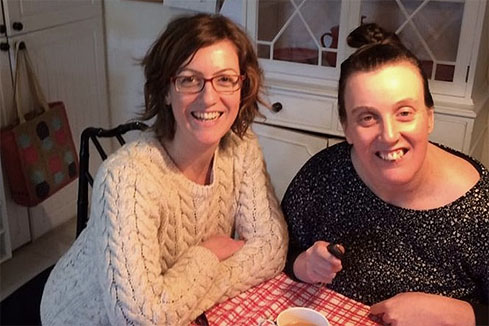
I worked as support worker, a care manager and an English to Speakers of Other Languages teacher before I trained to be a dietitian, graduating at the age of 32. Having worked with people within mental health and learning disabilities, as well as my time as a teacher; I knew I wanted a role bringing all these skills together. Now I’m in my dream job as a specialist learning disability dietitian and the clinical lead for dietetics in Cornwall.
How I got into the role
I returned to college on the access course which got me my place at Plymouth University. As a student I was keen to spend time with the learning disability and mental health dietitians. I was fascinated by the work in these specialities and was given support with my interest. After graduating I had a number of dietetic roles including community and stroke. These gave me a great background on dietetically managing a number of conditions in a variation of settings. I then took my first role as a learning disability dietitian covering a secondment on a part-time basis. This was followed by my first permanent role within the speciality in Plymouth. I have been in my current role working with the Learning Disabilities multi-disciplinary team for a few years now.
What I do
We know from the evidence that people with learning disabilities experience greater health inequalities compared to the rest of the population, that said, there is not a unifying health need. I see clients with a broad range of dietetic presentations which include nutritional support, weight management, constipation, gastro-intestinal difficulties and enteral feeding. I work closely with the learning disabilities multi disciplinary team as well as primary care, acute care, my dietetic colleagues in other services, social care and the patients’ family and support teams.
The best bits
The most rewarding part of the job is working with the client and advocating for their health needs. I see such humour and resilience. The best bit is working together with a person-centred approach to support a better health outcome; which in turn improves that person’s quality of life. I feel honoured to be in a role that can make a difference to peoples day-to-day.